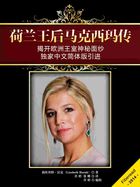TAXATION AND CONSCRIPTION.
I. Distributive Justice in Allotment of Burdens and Benefits.
Requirements previous to the Revolution. - Lack of distributive justice. - Wrongs committed in the allotment of social sacrifices and benefits. - Under the ancient Regime. - During the Revolution. -Napoleon's personal and public motives in the application of distributive justice. - The circumstances favorable to him. - His principle of apportionment. - He exacts proportion in what he grants.
The other group of needs, dating from long before 1789, involve wants which have survived the Revolution, because the Revolution has not satisfied these. The first, the most tenacious, the most profound, the most inveterate, the most frustrated of all is the desire for distributive justice. - In political society, as in every other society, there are burdens and benefits to be allotted. When the apportionment of these is unbiased, it takes place according to a very simple, self-evident principle:
For each individual the costs must be in proportion to the benefits and the benefits to the costs, so that, for each one, the final expense and the final receipt may exactly compensate each other, the larger or smaller share of expense being always equal to the larger or smaller share of profits.
Now, in France, this proportion had been wanting for many centuries;it had even given way to the inverse proportion. If, towards the middle of the eighteenth century, two sum-totals of the budget, material and moral, had been calculated, assets on one side and liabilities on the other:
On the one hand the sum of the apportionments exacted by the State, taxes in ready money, enforced labor, military service, civil subordination, every species of obedience and subjection, in short, every sacrifice of leisure, comfort and self-esteem.
On the other hand the sum of dividends distributed by the State of whatever kind or shape, security for persons and property, use and convenience of roads, delegations of public authority land liens on the public treasury, dignities, ranks, grades, honors, lucrative salaries, sinecures, pensions, and the like, that is to say, every gratification belonging to leisure, comfort, or pride - one might have concluded that the more a man contributed to the receipts the less would his dividend be, and the greater his dividend the less would he furnish to the general contribution.
Consequently, every social or local group consisted of two other groups: a majority which suffered for the benefit of the minority, and a minority which benefited at the expense of the majority, to such an extent that the privations of the greatest number defrayed the luxury of the small number. This was the case in all compartments as on every story, owing to the multitude, enormity and diversity of honorific or useful privileges, owing to the legal prerogatives and effective preferences by which the court nobles benefited at the expense of the provincial nobility,* the noblesse at the expense of plebeians, * the prelates and beneficiaries at the expense of poorly-paid curés and vicars, * the two highest orders of the clergy at the expense of the third, * the bourgeoisie at the expense of the people, * the towns at the expense of the rural districts, * this or that town or province at the expense of the rest, * the artisan member of a corporation at the expense of the free workman,and, in general, the strong, more or less well-to-do, in league and protected, at the expense of the weak, more or less needy, isolated and unprotected (indéfendus).[1]
One hundred years before the Revolution a few clairvoyant, open-hearted and generous spirits had already been aroused by this scandalous disproportion.[2] Finally, everybody is shocked by it, for, in each local or social group, nearly everybody is a sufferer, not alone the rural, the peasant, the artisan, and the plebeian, not alone the citizen, the curé and the bourgeois notable," but again the gentleman, the grand seignior, the prelate and the King himself.[3]
Each is denouncing the privileges of all others that affect his interests, each striving to diminish another's share in the public cake and to keep his own, all concurring in citing natural right and in claiming or accepting as a principle liberty and equality, but all concurring in misconception and solely unanimous in destroying and in allowing destruction,[4] to such an extent that, at last, the attack being universal and no defense anywhere, social order itself perishes, entirely owing to the abuses of it.
On the reappearance of the same abuses, the lack of distributive justice in revolutionary France became still more apparent than in monarchical France. Through a sudden transposition, the preferred of the former Régime had become the disgraced, while the disgraced of the former Régime had become the preferred; unjust favor and unjust disfavor still subsisted, but with a change of object. Before 1789, the nation was subject to an oligarchy of nobles and notables; after 1789, it became subject to an oligarchy of Jacobins big or little.
Before the Revolution, there were in France three or four hundred thousand privileged individuals, recognizable by their red heels or silver shoe-buckles. After the Revolution, there were three or four hundred thousand of the privileged, recognizable by their red caps or their carmagnoles.[5] The most privileged of all, the three or four thousand verified nobles, presented at court and of racial antiquity, who, by virtue of their parchments, rode in the royal carriages, were succeeded by three or four thousand Jacobins of a fresh sprout, no less verified and accepted, who, by virtue of their civic patent, sat in the club of the rue Saint-Honoré and the latter coterie was still more dominant, more exclusive, more partial than the former one.















